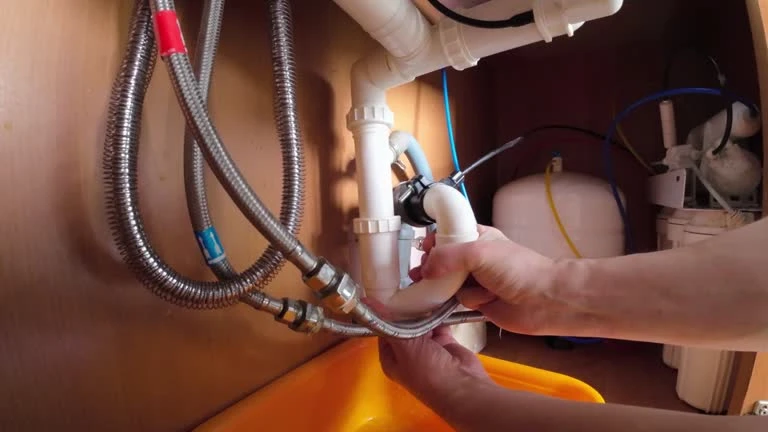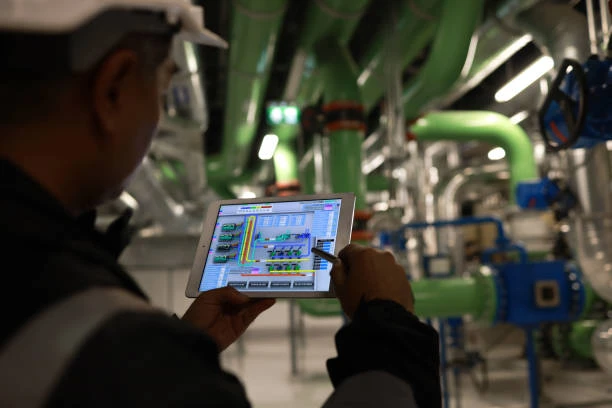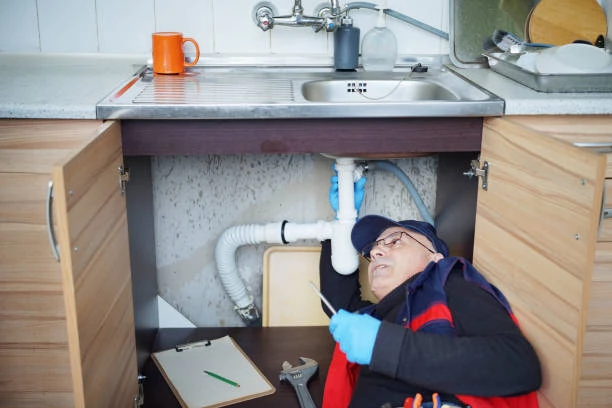PE (Polyethylene) fittings have gained widespread popularity in various industries, particularly in applications involving potable water systems, food processing, and chemical transportation. Their non-toxic nature makes them a preferred choice where safety and hygiene are paramount. The use of PE fittings ensures that harmful chemicals do not leach into the fluids they convey, maintaining the purity and safety of water, food, and other sensitive substances.
Understanding the Non-Toxic Properties of PE
Polyethylene, the base material for PE fittings, is an inert thermoplastic. Its molecular structure comprises long chains of ethylene monomers, which are stable and resistant to chemical reactions. This stability prevents PE from interacting with the substances it carries, ensuring that no toxic elements or contaminants are released during use.
The non-toxic nature of them is primarily due to their lack of additives or plasticizers that could pose health risks. Unlike some other plastics that require additives to enhance flexibility, durability, or performance, PE achieves these properties inherently. As a result, PE fittings do not release harmful substances into the environment or the fluids they transport, even under high temperatures or prolonged exposure.
Applications in Potable Water Systems
One of the most significant applications of them lies in potable water systems. The non-toxic nature of these fittings ensures that water remains safe for consumption from the source to the tap. PE fittings do not leach harmful chemicals into the water, a critical factor in maintaining water quality and public health.
In residential, commercial, and industrial water supply systems, PE fittings provide a reliable connection between pipes, ensuring a continuous flow of clean water. The material’s resistance to corrosion and chemical degradation further enhances its suitability for potable water applications. Unlike metal fittings, which can corrode and introduce contaminants into the water, PE fittings remain stable and inert over time, preserving water purity.
PE fittings also play a vital role in municipal water systems. Cities and towns often rely on extensive networks of pipes and fittings to deliver water to homes and businesses. The use of non-toxic PE fittings in these systems helps prevent contamination, ensuring that the water reaching consumers meets safety standards. Additionally, the durability of PE fittings reduces the need for frequent replacements, minimizing the risk of leaks and the introduction of external contaminants.
Food and Beverage Industry Applications
The food and beverage industry demands strict adherence to safety and hygiene standards. In this context, PE fittings offer an ideal solution due to their non-toxic and chemically inert properties. These fittings do not react with food or beverages, ensuring that the products remain uncontaminated during processing, packaging, and distribution.
In food processing plants, PE fittings connect pipes that transport liquids, gases, and other ingredients essential to production. The fittings’ resistance to chemical reactions prevents any alteration of the food products, preserving their taste, quality, and safety. This characteristic is particularly important in the dairy, beverage, and liquid food sectors, where maintaining the purity of the product is critical.
Moreover, the smooth interior surface of them prevents the buildup of residues, which can harbor bacteria and other pathogens. This feature further enhances the safety and hygiene of food processing operations. Regular cleaning and sterilization processes easily remove any contaminants, reducing the risk of foodborne illnesses and ensuring compliance with food safety regulations.
Chemical and Pharmaceutical Industries
In the chemical and pharmaceutical industries, the non-toxic nature of them ensures that sensitive chemicals and drugs remain uncontaminated during production and transport. PE fittings provide a safe conduit for transporting a wide range of chemicals, including acids, bases, and solvents, without introducing impurities.
Pharmaceutical companies often use them in their production lines to maintain the purity of drugs and other medical products. The fittings’ chemical resistance and inertness prevent reactions with the active ingredients, ensuring that the final products meet stringent quality and safety standards. This reliability makes PE fittings a critical component in the production of medicines, vaccines, and other healthcare products.
Similarly, in the chemical industry, PE fittings facilitate the safe handling of hazardous substances. The fittings do not degrade or leach harmful substances when exposed to aggressive chemicals, reducing the risk of contamination. This non-toxic characteristic is essential in processes where chemical purity directly impacts product quality and safety.
Environmental and Safety Benefits
The non-toxic nature of them extends beyond their immediate applications to offer broader environmental and safety benefits. By using PE fittings, industries reduce the risk of environmental contamination, particularly in water supply systems and chemical handling operations. The stability of PE means that it does not break down into harmful substances over time, making it a safer choice for long-term use.
In addition to their non-toxic properties, PE fittings contribute to environmental sustainability through their recyclability. At the end of their service life, PE fittings can be recycled and repurposed, reducing waste and conserving resources. This characteristic aligns with global efforts to minimize the environmental impact of industrial and construction activities.
Safety also improves with the use of them. Unlike metal fittings, which can corrode and pose health risks, PE fittings remain stable and inert. This stability reduces the likelihood of accidents, such as chemical leaks or exposure to toxic substances, making PE fittings a safer option for workers and consumers alike.
Compliance with Health and Safety Standards
PE fittings meet stringent health and safety standards, making them a reliable choice for applications where safety is a priority. Regulatory bodies in many countries approve PE for use in potable water systems, food processing, and other sensitive applications, attesting to its non-toxic properties.
In the United States, for example, PE fittings used in potable water systems must comply with NSF/ANSI 61 standards, which ensure that the materials do not introduce harmful contaminants into the water. Similarly, in Europe, PE fittings used in food contact applications must comply with EU regulations, which set strict limits on the migration of substances from plastics into food.
These certifications and standards provide assurance that PE fittings are safe for use in applications where human health and safety are at stake. Industries can trust that PE fittings will not compromise the safety of their products or processes, allowing them to focus on delivering quality and safety to consumers.
Conclusion
PE fittings offer a reliable, non-toxic solution for a wide range of applications, from potable water systems to food processing and chemical transport. Their chemical stability, resistance to degradation, and lack of harmful additives ensure that they do not introduce contaminants into the substances they convey. This non-toxic nature makes them a preferred choice in industries where safety, hygiene, and environmental protection are critical.
By choosing PE fittings, industries benefit from a material that not only meets but often exceeds safety standards, providing peace of mind in applications where human health and environmental safety are paramount. The continued use and development of them reflect the material’s vital role in promoting safety and sustainability across various sectors.
Connect
IFAN is a Chinese manufacturer of plastic pipes, fittings and valves with 30 years of experience. If you are interest in IFAN copper fittings, copper valves, plastic pipes and fittings, please contact us. IFAN offers you a variety of standard pipes to meet your specific needs. Click below to learn more about IFAN’s wide range of affordable and cost-effective valve products and piping system related products.
We will reply your email or fax within 24 hours.
You can call us at any time if there is any question on our production.
For more information,pls visit our webside https://waterpipefitting.com/
Pls Mailto: [email protected]
Whatsapp: + 86 19857948982














Recent Comments